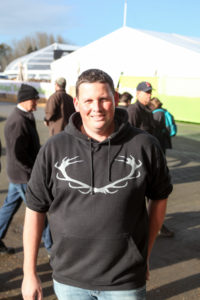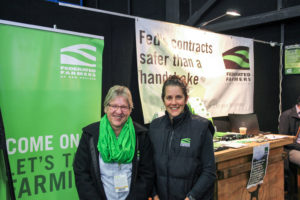Steak? How about locust instead…
The future of farming is changing, but would you be open to a deep fried locust? Or cricket in your protein shake?
Fancy some ants in your smoothie? Or how about some crickets on your toast to make your morning a bit more chirpy?
What Next hosts John Campbell and Nigel Latta recently explored the future of farming, and it looks as if insects may be the next big thing that adds crunch to your lunch.
There was plenty of support for the idea at Fieldays.
Dairy farmer Matthew O’Brien-Brown sees potential in the world of insect farming.

While he doesn’t think there will be a market for insects in New Zealand, he thinks farming insects here in the future would be a very promising industry for exporting overseas.
“I think there’s definitely potential,” said O’Brien-Brown.
Insects are seen as a food source in other countries, and he thinks New Zealand has a chance to cash in on this
Commercial manager for Job Flow, Rusty Knutson, thinks there may be a market for it in New Zealand depending on how they were sold.
“There possibly is (a market for it) I’m sure, it’s a cheap source of protein,” Knutson said .
If they came as ground-up protein he would be all for in his protein shakes in the morning, but he did admit he would rather not be chewing up large bug heads.
Knutson believes bugs should be farmed alongside cows or sheep as an alternative.
“Would I want to see cows and sheep disappear from New Zealand’s landscapes, no I wouldn’t, and would I still eat meat, yes I would.”
Federated Farmers general manager for membership Lyndel Stone said insect farmers would be welcome as members.
“You can’t halt progress so you have to embrace it,” Stone said.

She believes farmers should be open to changing their practices to embrace the future.
Senior policy advisor Nikki Edwards said she would be open to the idea as well.
“I don’t see them being any different from bee farmers.”




